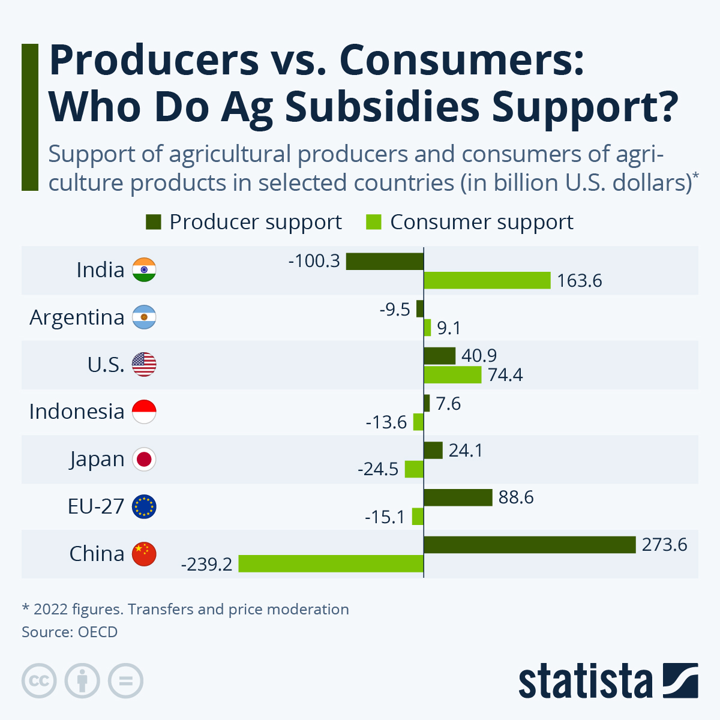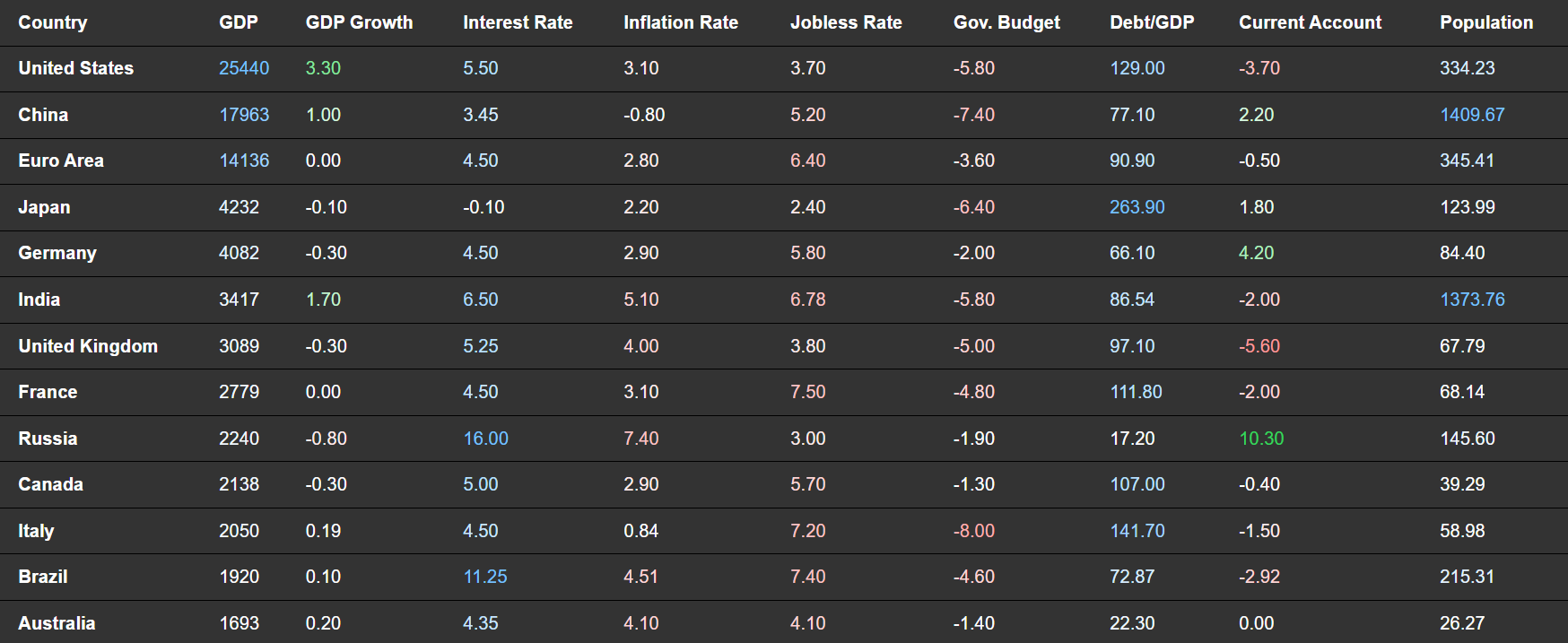Home > Wednesday Wisdoms: Newsletter > 🧞♂️ Don’t follow what most students do.....
Jump to Section:
🧞♂️ Don’t follow what most students do.....

UK infant formula at ‘historically high’ prices, says watchdog
Summary
A Level Economics Questions:
Possible A Level Economics 25 Marker Question
Infographic of the Week

Global Powerhouses of Innovation: Charting the World's Premier Science and Technology Hubs
In 2023, the forefront of global science and technology innovation was marked by significant developments, including the U.S.'s first over-the-counter birth control pill and the exponential growth of AI technologies like ChatGPT. Dominated by East Asian clusters, with Tokyo-Yokohama leading in patent applications, the Global Innovation Index 2023 identifies the top 50 S&T hubs worldwide. The index highlights the San Francisco Bay Area as the leading American cluster, renowned for housing giants like Adobe and Google. Notably, China surpasses other nations with 24 top-ranked clusters, reflecting its ascendancy in global innovation, while the U.S. boasts 21. This dynamic landscape underscores the strategic importance of R&D investments, with the U.S., China, and Japan at the helm, driving forward the global innovation ecosystem.
Chart of the Week

India's Agrarian Dilemma: Farmers' Plight Amidst Subsidy Imbalances
In early 2024, Indian farmers resumed protests after negotiations regarding legally binding minimum support prices for agricultural products collapsed, leading to tensions near Delhi. This unrest comes ahead of the presidential elections, echoing the 2020 and 2021 upheavals against deregulating government-controlled markets and altering support prices, which farmers successfully resisted. The OECD's 2022 Agricultural Policy Monitoring report highlights that Indian policies reduce farm prices to benefit consumers, disadvantaging farmers by an estimated net loss of $163.6 billion in 2022, despite subsidies. In contrast, consumers gain from policies like the Targeted Public Distribution System, saving over $100 billion annually. This stark contrast in support reveals the complex challenges of India's agricultural sector, calling for a rebalanced approach to subsidies that doesn't disproportionately tax farmers for consumer savings.
Macroeconomic Data

Whenever you're ready there is one way I can help you.
Emre Aksahin
Chief Learning Officer at Edgenie


